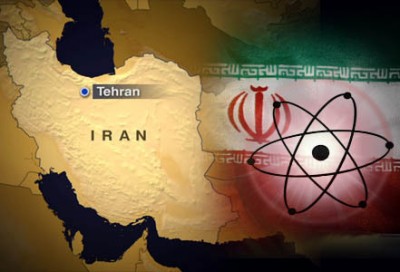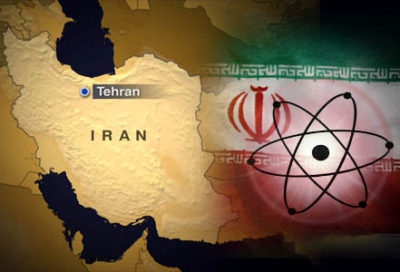 BY: John Kerry
BY: John Kerry
July 20, the deadline to negotiate a comprehensive agreement on Iran’s nuclear program, is fast approaching.
All along, these negotiations have been about a choice for Iran’s leaders. They can agree to the steps necessary to assure the world that their country’s nuclear program will be exclusively peaceful and not be used to build a weapon, or they can squander a historic opportunity to end Iran’s economic and diplomatic isolation and improve the lives of their people.
Diplomacy and leadership are marked by tough calls. This shouldn’t be one of them.
Iranian officials have stated repeatedly and unambiguously that they have no intention of building a nuclear weapon and that their nuclear activities are designed solely to fulfill civilian needs. Assuming that’s true, it’s not a hard proposition to prove.
The United States and our partners have demonstrated to Iran how serious we are. During the negotiations to reach the Joint Plan of Action, we extended our hand to the Iranians and met with them directly to understand what Iran wanted from its nuclear program. Along with our international partners, we helped chart a path that would allow Iran to have a domestic program for exclusively peaceful purposes. We proved that we were flexible in offering financial relief.
Throughout these talks, Iran’s negotiators have been serious. Iran has also defied the expectations of some by meeting its obligations under the Joint Plan of Action, which has allowed time and space for the comprehensive negotiations to proceed. Specifically, Iran has been eliminating its stockpile of higher levels of enriched uranium, limited its enrichment capability by not installing or starting up additional centrifuges, refrained from making further advances at its enrichment facilities and heavy-water reactor, and allowed new and more frequent inspections. In exchange, the European Union and the P5+1 have provided limited financial relief to Iran, even as the architecture of international sanctions and the vast majority of sanctions themselves remained firmly in place.
Now Iran must choose. During the comprehensive negotiations, the world has sought nothing more than for Iran to back up its words with concrete and verifiable actions. We have, over the past several months, proposed a series of reasonable, verifiable and easily achievable measures that would ensure Iran cannot obtain a nuclear weapon and that its program is limited to peaceful purposes. In return, Iran would be granted phased relief from nuclear-related sanctions.
What will Iran choose? Despite many months of discussion, we don’t know yet. We do know that substantial gaps still exist between what Iran’s negotiators say they are willing to do and what they must do to achieve a comprehensive agreement. We also know that their public optimism about the potential outcome of these negotiations has not been matched, to date, by the positions they have articulated behind closed doors.
These gaps aren’t caused by excessive demands on our part. On the contrary, the E.U. and P5+1 negotiators have listened closely to Iran’s questions and concerns and showed flexibility to the extent possible consistent with our fundamental goals for this negotiation. We have worked closely with Iran to design a pathway for a program that meets all of the requirements for peaceful, civilian purposes.
There remains a discrepancy, however, between Iran’s professed intent with respect to its nuclear program and the actual content of that program to date. The divide between what Iran says and what it has done underscores why these negotiations are necessary and why the international community united to impose sanctions in the first place.
Iran’s claim that the world should simply trust its words ignores the fact that the International Atomic Energy Agency has reported since 2002 on dozens of violations by Iran of its international nonproliferation obligations, starting in the early 1980s. The U.N. Security Council responded by adopting four resolutions under Chapter VII, requiring Iran to take steps to address these violations. These issues cannot be dismissed; they must be addressed by the Iranians if a comprehensive solution is to be reached. These are not just the expectations of any one country, but of the community of nations.
To gain relief from sanctions, the world is simply asking Iran to demonstrate that its nuclear activities are what it claims them to be.
Nine months ago, Iran’s president, Hassan Rouhani, wrote in The Post that: “International politics is no longer a zero sum game but a multi-dimensional arena where cooperation and competition often occur simultaneously. . . . World leaders are expected to lead in turning threats into opportunities.”
It was in that spirit that President Obama committed the United States to exploring the possibility of a negotiated solution to Iran’s nuclear standoff. We entered into this negotiating process because we believed it had a real chance to succeed.
It still does, but time is running short.
If Iran is able to make these choices, there will be positive outcomes for the Iranian people and for their economy. Iran will be able to use its significant scientific know-how for international civil nuclear cooperation. Businesses could return to Iran, bringing much needed investment, jobs and many additional goods and services. Iran could have greater access to the international financial system. The result would be an Iranian economy that begins to grow at a significant and sustainable pace, boosting the standard of living among the Iranian population. If Iran is not ready to do so, international sanctions will tighten and Iran’s isolation will deepen.
Our negotiators will be working constantly in Vienna between now and July 20. There may be pressure to put more time on the clock. But no extension is possible unless all sides agree, and the United States and our partners will not consent to an extension merely to drag out negotiations. Iran must show a genuine willingness to respond to the international community’s legitimate concerns in the time that remains.
In this troubled world, the chance does not often arise to reach an agreement peacefully that will meet the essential and publicly expressed needs of all sides, make the world safer, ease regional tensions and enable greater prosperity. We have such an opportunity, and a historic breakthrough is possible. It’s a matter of political will and proving intentions, not of capacity. It’s a matter of choices. Let us all choose wisely.
John Kerry is U. S. secretary of state
Washington Post


Leave a Reply
You must be logged in to post a comment.